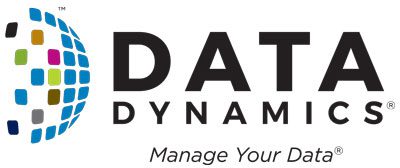Highlights:
- AI thrives on information, but if that information is inaccurate, incomplete, or biased, the results can be disastrous. A recent Gartner survey exposes the harsh reality: organizations lose an average of $15 million annually due to poor data quality.
- The solution lies in a fundamental shift in mindset. Before diving headfirst into AI, organizations must prioritize data preparedness. This goes beyond simply cleaning existing data; it also means embracing the immense potential of unstructured data, a hidden treasure trove waiting to be unlocked.
- However, the sheer volume and lack of organization inherent to this data type make it difficult to analyze with traditional methods. Manual data classification and labeling is a time-consuming and error-prone process, hindering the development of robust AI models. But there’s a silver lining – the new age data management solutions that blend data analytics and infrastructure management into one cohesive fabric.
- This is where Data Dynamics and Hitachi Vantara come in. Together, they offer a holistic solution, transforming the data maze into a springboard for responsible AI innovation.
In this Blog:
Imagine this: you’re about to make a multi-million dollar investment decision based on a market report. However, upon closer inspection, you discover the report is riddled with inconsistencies and outdated information. Suddenly, that multi-million dollar bet feels a lot less certain, doesn’t it?
This scenario is synonymous with the hidden danger of Artificial Intelligence (AI). Headlines glorify self-driving cars and robot assistants, but a silent crisis simmers beneath: dirty data. AI thrives on information, but if that information is inaccurate, incomplete, or biased, the results can be disastrous.
A recent Gartner survey exposes the harsh reality: organizations lose an average of $15 million annually lose an average of $15 million annually due to poor data quality. Even worse, nearly 60% are unaware of the true cost because they simply don’t measure it.
The consequence? Organizations drown in data yet thirst for actionable insights. Data workers spend a staggering 50-80% of their time wrestling with data preparation and cleansing. This leaves little time for the real task: uncovering hidden patterns, deriving insights, and building the AI models that could revolutionize their business.
The solution lies in a fundamental shift in mindset. Before diving headfirst into AI, organizations must prioritize data preparedness. This goes beyond simply cleaning existing data; it also means embracing the immense potential of unstructured data, a hidden treasure trove waiting to be unlocked. By prioritizing data quality and taking control of their data landscape, organizations can ensure their AI initiatives are built on a solid foundation. This not only mitigates risk but also unlocks the true potential of AI to transform their business and propel them toward a future fueled by valuable insights.
Buried Treasure: Why Unstructured Data is the Key to Unlocking AI’s True Potential
For decades, enterprises have relied on structured data – the neatly organized kind found in rows and columns of spreadsheets and databases – to fuel their business intelligence. However, in today’s data-driven world, a hidden treasure trove of information lies dormant: unstructured data. This vast and diverse category encompasses everything from emails and conversations to customer call recordings and medical images. According to a recent IDC report, unstructured data accounts for a staggering 80-90% of all enterprise information. Ignoring this rich vein of data is akin to leaving a significant portion of your resources buried underground.
So, why should enterprises prioritize unstructured data in their AI development strategies? The answer is simple: it holds the key to richer insights and a more nuanced understanding of the ever-evolving business landscape. AI, at its core, is a learning machine. It thrives on data, but not just any data. High-quality data is the fuel that powers accurate and reliable AI models. Structured data, with its clean rows and columns, provides a solid foundation. However, this represents only a fraction of the information we generate. The real goldmine lies in unstructured data that offers the richness and nuance needed for truly transformative AI. And industry giants are taking notice. A recent Forbes article highlights how organizations leveraging unstructured data report a potential 10-20% increase in revenue and a 20-50% reduction in costs. Unlocking this potential, however, requires us to bridge the gap between the structured world of AI and the unstructured world of human communication and experience.
Consider the healthcare sector. A patient’s medical history isn’t just a collection of clinical test results. It’s a narrative woven from doctor’s notes, discharge summaries, and even emotional observations. Extracting valuable insights from these unstructured sources can empower AI to identify hidden patterns in patient data, potentially leading to earlier diagnoses, more personalized treatment plans, and even breakthroughs in medical research. A recent study published in Nature Medicine showcased how AI trained on unstructured clinical notes could predict a patient’s risk of developing sepsis, a potentially life-threatening condition.
However, unlocking the potential of unstructured data for AI isn’t without its challenges. The sheer volume and lack of organization inherent to this data type make it difficult to analyze with traditional methods. Manual data classification and labeling is a time-consuming and error-prone process, hindering the development of robust AI models. Additionally, ethical considerations come into play. Unstructured data can often contain sensitive information, raising concerns about privacy and security.
The solution lies in a new breed of data management software. These platforms integrate metadata, which acts as a label for unstructured data, with advanced content analytics to facilitate discovery, generate insights, and enable action. This empowers enterprises to not only locate relevant information within their data silos but also to understand its quality, optimize its use for AI development, and ensure compliance with data security and governance regulations.
Unlocking the true potential of unstructured data for AI development necessitates a multi-pronged approach, which is possible today using just one data management software, allowing a single-pane view of your enterprise datasphere. Firstly, advanced data management software is crucial. These software go beyond simple storage – they integrate metadata, essentially labels for the unstructured data, with powerful content analytics. This “metadata magic” allows enterprises to locate relevant information within their data silos, understand its quality, and optimize its use for AI development. Think of it as a sophisticated treasure map, guiding AI to the most valuable nuggets of information while ensuring data security and compliance with governance regulations.
Secondly, data quality takes center stage. AI models are only as good as the data they’re trained on. Unstructured data is particularly susceptible to errors, inconsistencies, and biases. Data management software can automate data cleansing and labeling processes, significantly improving the quality of the information fed to AI models. This, in turn, fosters trust and transparency, as stakeholders can be confident that AI decisions are rooted in reliable and unbiased data.
Finally, the ethical considerations of using unstructured data in AI development cannot be overstated. This data often contains sensitive information, raising concerns about privacy and security. Robust data governance frameworks are essential to ensure that AI is developed and deployed responsibly, protecting individual privacy and adhering to ethical principles.
Overall, it’s evident that the future of AI lies not just in its technical prowess but also in its ability to leverage the vast potential of unstructured data. By prioritizing data quality and adhering to ethical principles, enterprises can unlock a treasure trove of insights from unstructured data. This paves the way for the development of trustworthy and impactful AI solutions that will revolutionize industries, ultimately driving innovation and delivering real-world benefits for businesses and society at large. As AI continues to evolve, the race will be won by those who can effectively tap into the vast potential of unstructured data.
And this is where the Hitachi Vantara and Data Dynamics partnership comes in.
How Data Dynamics and Hitachi Vantara Are Pioneering Ethical and Effective AI
Data Dynamics and Hitachi Vantara’s recent collaboration is a game-changer in the quest for ethical and effective AI. This powerful alliance transcends mere data sprawl, compliance, and security concerns. It lays the groundwork for a future where AI can leverage the immense potential of unstructured data – the hidden treasure trove businesses have been sitting on.
Organizations are drowning in a sea of information yet thirsting for actionable insights. A recent AIIM report highlights this paradox: 37% of businesses have poor data visibility, and a staggering 52% struggle to find specific information. Knowledge workers spend a dreadful 17% of their workday simply searching for data (IDC). This data paralysis is poised to worsen as unstructured data, encompassing emails, social media posts, and customer interactions, explodes to an estimated 175 zettabytes by 2025 [IDC]. The true challenge lies not just in managing this data deluge but in unlocking its potential for AI development. Traditional methods struggle with unstructured data’s inherent lack of organization and volume.
This is where the Hitachi Vantara and Data Dynamics partnership shines. Hitachi Vantara’s intelligent storage solutions transform data from passive repositories into active guardians. Imagine the cost savings and efficiency gains from prioritizing data based on relevance and value, ensuring only essential information is retained. This laser focus on data quality is paramount for AI, as its effectiveness hinges on the quality of data it ingests. Data Dynamics steps in to unlock the secrets within unstructured data. Their solution leverages the power of metadata and advanced content analytics, illuminating the vast potential of this information. This translates into comprehensive risk assessments that safeguard privacy and ensure adherence to security regulations in a world increasingly focused on data ethics. But the benefits extend far beyond compliance. Data Dynamics empowers businesses to extract valuable patterns and insights from unstructured data. This fosters a deeper understanding of customers and operations, enabling data-driven decision-making.
Perhaps the most transformative aspect of this collaboration lies in its focus on data ownership. Data Dynamics’ software empowers businesses to become true “data stewards,” fostering a culture of data responsibility. Their unified platform simplifies data governance, security, and compliance. This empowers business units to manage their data effectively while adhering to strict IT security protocols. This collaborative approach is crucial for building trust and transparency – essential ingredients for ethical AI development.
Armed with granular insights and the ability to take action, businesses can not only strengthen their data security but also refine practices to better align with evolving customer preferences and regulations. This ethical and responsible use of data is critical for building trust with stakeholders and ensuring the long-term success of AI initiatives. The partnership between Data Dynamics and Hitachi Vantara goes beyond streamlining data management. It ushers in a future where AI can leverage the vast potential of unstructured data, unlocking a new era of intelligent decision-making and innovation – all while adhering to the highest ethical standards. This future empowers businesses to become truly data-driven, harnessing the power of information to achieve sustainable growth and success.
For further information or to discuss how Data Dynamics and Hitachi Vantara can help your organization unlock the power of AI, contact us at solutions@datdyn.com or call (713)-491-4298. Additionally, schedule a meeting with our executives to explore the intricacies of the partnership and discover how it can fuel your organization’s success. Click here to schedule a meeting.






